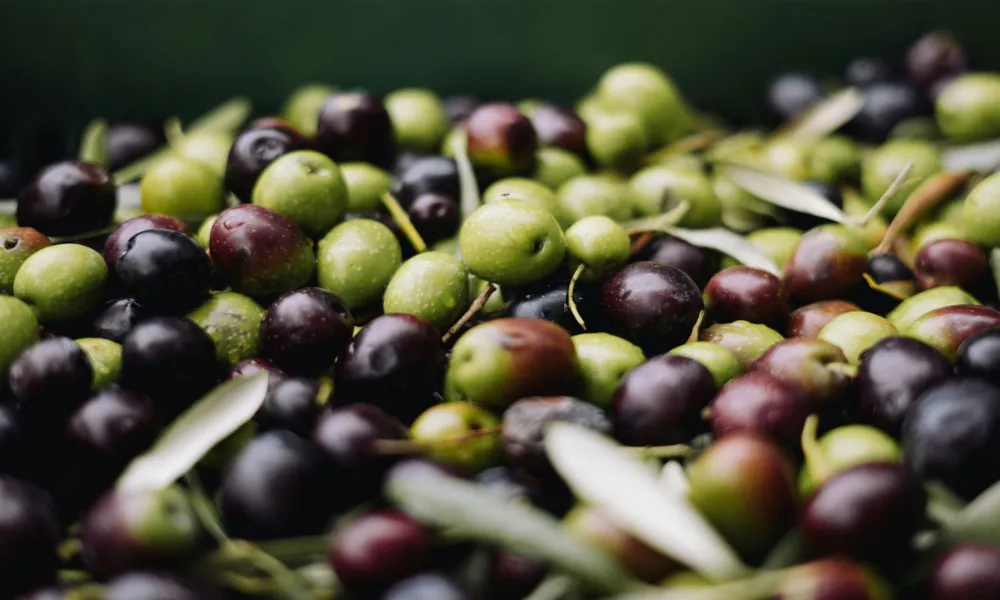The recent drop in retail olive oil prices, following the sharp increases experienced by consumers in recent years, is largely due to imports. Meanwhile, the Cypriot olive groves continue to suffer severe setbacks from ongoing droughts and strict irrigation restrictions, alongside the wider primary sector. According to those on the ground, this year’s olive oil production is barely 20% of a typical year.
Farmers are describing it as the worst harvest in recent years, with some areas experiencing the worst yields in the last decade.
Trees in shock
The state of the groves has been described by Tasos Yapanis, Secretary General of the Panagrotikos Association of Cyprus: “All tree crops have been affected by the lack of rainfall. For the first time, we have seen olive trees shedding leaves due to the shock of the drought, both in linear plantations and traditional Cypriot trees.”
Following a tour of olive groves in the Larnaca district – including Tersefanou, Dromolaxia, Anglisides, and Pervolia – Mr Yapanis reported that production this year had “fallen to one fifth” of normal levels.
He explained that a ten-dunam linear olive plantation typically requires around 400 cubic metres of water. “This has gradually fallen to 300, and this year only 100 was allocated. With just 100 cubic metres, you are simply keeping the trees alive. Production is impossible under such conditions.”
Heading towards disaster
Olive producer and organic farmer Panikos Matsoukas confirmed the grim outlook, reporting that groves produced roughly 20% of last year’s volume.
“Last year, dam levels were around 25–30%, and in January we received roughly 100 tonnes of water per ten dunams. Now, with just 11%, I fear that no matter how much rain falls in December and January, we will not get sufficient water for timely irrigation,” he said, warning that “next year could be disastrous if this continues.”
Mr Matsoukas also criticised the late announcement of water allocations, which he says prevents farmers from planning. “When allocations are only confirmed in February or March, it throws production into disarray, as the critical irrigation months of January and February have already passed.”
Other countries bounce back
Data from the International Olive Council highlights the scale of Cyprus’s problem. In 2022, Cyprus produced 4,800 tonnes of olive oil. Production collapsed to 2,800 tonnes in 2023, a drop of 41.6%. Estimates for 2024 suggest a slight recovery to 3,800 tonnes - still 21% below 2022 levels. A decade ago, annual production reached 7,500 tonnes.
Globally, Cyprus accounts for just 0.1% of olive oil production. By comparison, Spain produced 854,000 tonnes, Italy 328,000 tonnes, Greece 175,000 tonnes, Turkey 215,000 tonnes, and Cyprus a mere 2,800 tonnes.
Unable to compete
While production collapses, retail olive oil prices are falling, largely due to the international market. Local disturbances have little effect on global prices, but they significantly impact Cypriot farmers’ incomes. Price stability is mainly thanks to adequate production elsewhere in the Mediterranean and overproduction from Tunisia and Morocco.
“As producers, we don’t set the price. Traders can import cheap oil from Spain, Tunisia, Morocco, or Greece. How can a Cypriot farmer compete?” Mr Matsoukas said.
For this reason, he has stopped selling to traders and mills. “I do my own bottling. I sell less, but at a better price. It’s difficult, but it’s the only way,” he explained.
Prices at 50% of 2021 levels
The Consumer Price Index for olive oil fell by around 30% in October 2025 compared with the same month last year. Nonetheless, prices remain roughly 50% higher than in 2021. Retail prices for extra virgin olive oil currently hover around €7.50 per litre, down from €9.50 last year, while producer prices are approximately €5.50.
Farmers are calling for urgent measures. Government plans for water management, they say, focus on long-term projects with a 5–10 year horizon, whereas the problem is immediate.
Mr Yapanis highlighted the need for short-term solutions, including cloud seeding. He warned that without decisive action, “we will see trees drying out and producers abandoning the profession.”
